
Contents
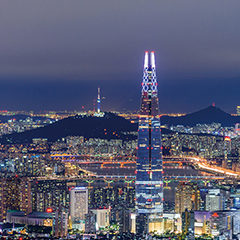


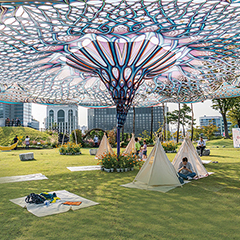






Current Korea · Written by Sohn Ji-ae Photo courtesy of Cheong Wa Dae
Asia’s Collective Ability
to Tackle Economic Crisis
The collective force of Asia’s dynamic economies is a manifestation of their success
in the economic sphere, as they will account for more than two-thirds of global growth this year.
With the region facing an economic crisis driven by global uncertainty and slowing growth, President
Moon Jae-in has urged the use of Asia’s strong economic integration to jointly tackle this latest challenge.
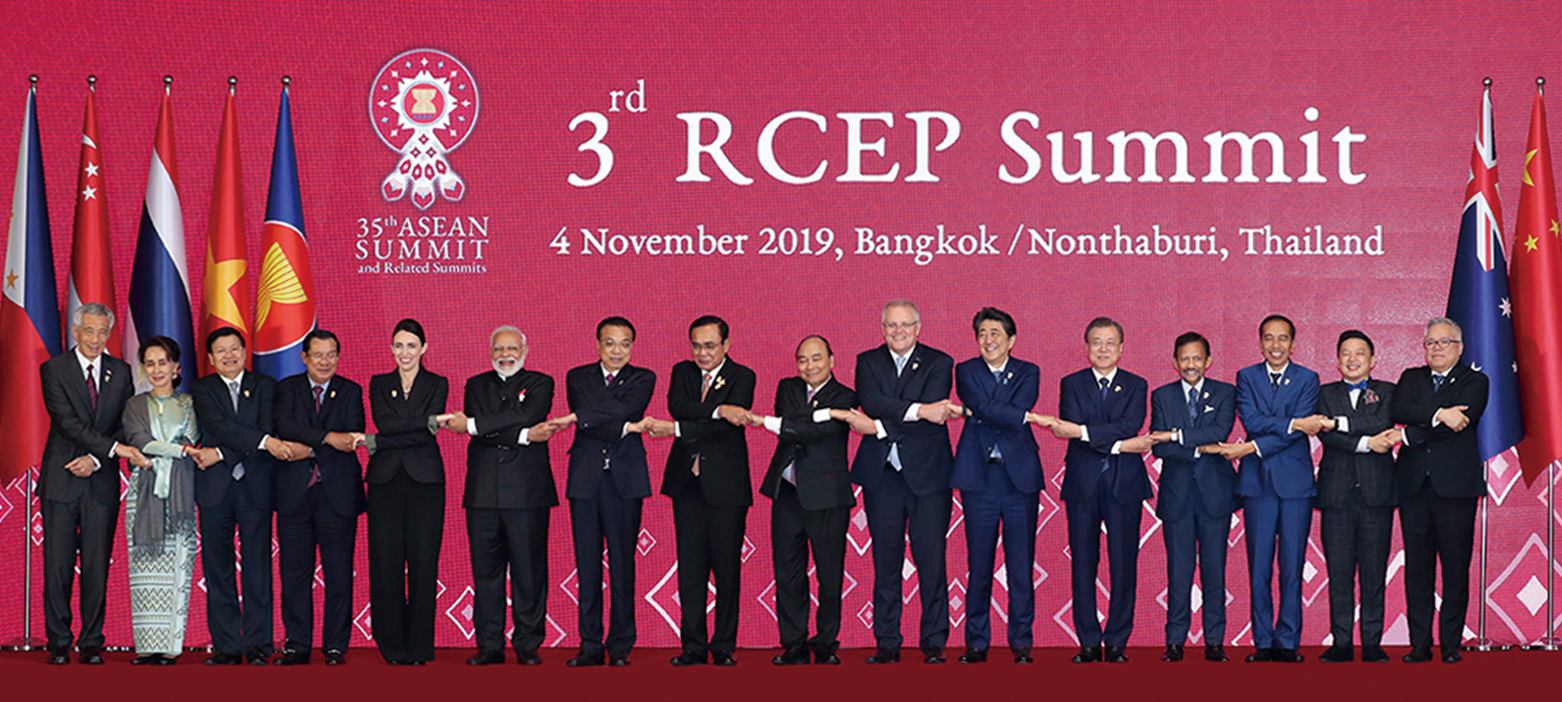
President Moon Jae-in (fifth from right) on Nov. 4 holds hands with heads of state attending the third RCEP Summit in Bangkok, Thailand.
The global economy is in a “synchronized slowdown” that could worsen if governments fail to resolve trade conflicts or support growth, warned Kristalina Georgieva, managing director of the International Monetary Fund (IMF), in early October. She also forecast that economic growth this year will “fall to its lowest rate since the beginning of the decade.”
Given this precarious outlook, a “synchronized response” among world economies is urgently needed to quickly and effectively overcome factors that could hamper economic growth and raise uncertainty.
President Moon Jae-in said the best possible antidote to the impending crisis is the collective strength of Asian economies, especially from the member states of the Association of Southeast Asian Nations (ASEAN). He said that some 20 years ago, he directly saw the impact that such a synchronized response of the region had on overcoming challenges. At the time, Korea faced the worst economic crisis in its modern history, being forced to turn to the IMF for a bailout. One of the silver linings of the crisis, however, was the teaming up of the ten ASEAN member nations with Korea, China and Japan to form ASEAN Plus Three. By combining their efforts, the 13 countries created a robust economic sphere that accounted for 30 percent of the global economy.
With the world facing yet another economic crisis around two decades later, President Moon expressed confidence that the ASEAN Plus Three partnership can again play a pivotal role in facing the crisis.
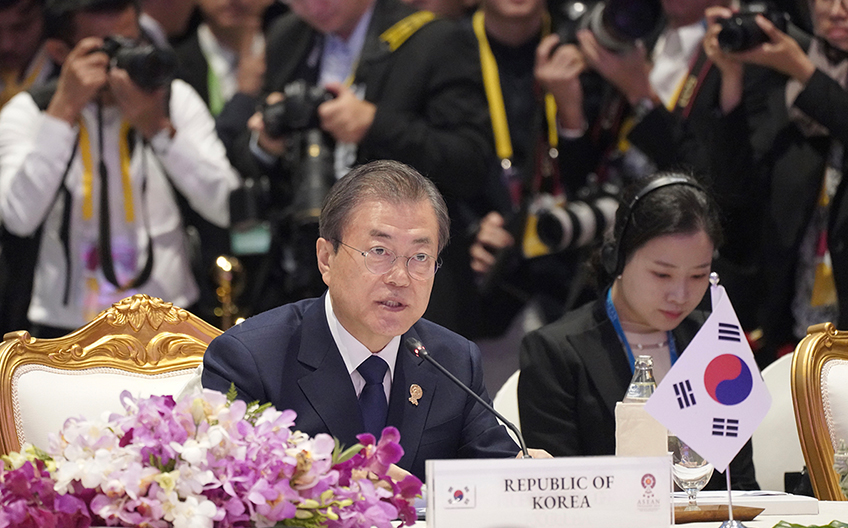
President Moon Jae-in on Nov. 4 delivers his opening speech at the ASEAN Plus Three Summit in Bangkok, Thailand.
Power of Asian Connectivity
Visiting Thailand in early November just ahead of the Korea-ASEAN special summit in Busan, President Moon urged at the ASEAN Plus Three Summit the need to further advance the cooperative mechanism and make joint responses to diverse crises.
He asked that the 13 nations enhance their connectivity, saying, “The stronger our interconnection and cooperation between ASEAN and Korea, the more the vision of an ‘East Asian Community’ becomes attainable.”
For boosting regional peace and prosperity across Asia, especially on the Korean Peninsula, as well as for bolstering the economy, the combined efforts of East Asia and ASEAN have never been more crucial. “Peace on the peninsula will contribute to the peace and prosperity of countries in East Asia, ASEAN and the Pacific,” the president told the East Asia Summit (EAS) in Bangkok, asking that the EAS take joint action to turn the Demilitarized Zone into an “international peace zone.”
In a major breakthrough for free trade in the region, negotiations on the Regional Comprehensive Economic Partnership (RCEP), which seeks to form the world’s largest free trade bloc, were completed in Bangkok among member nations of ASEAN Plus Three and Australia and New Zealand. The heads of state of the RCEP’s signatory nations said they are committed to signing the accord next year, and thus many expect the partnership to inject more vigor into regional trade and investment.
Based on free and liberal trade standards, the RCEP heralds the appearance of a mega-free trade bloc that accounts for half of the world’s population and a third of global GDP. The Korean government expects that the RCEP after ratification will also accelerate its New Southern Policy aimed at improving Seoul’s strategic relations mainly with Southeast Asian countries.
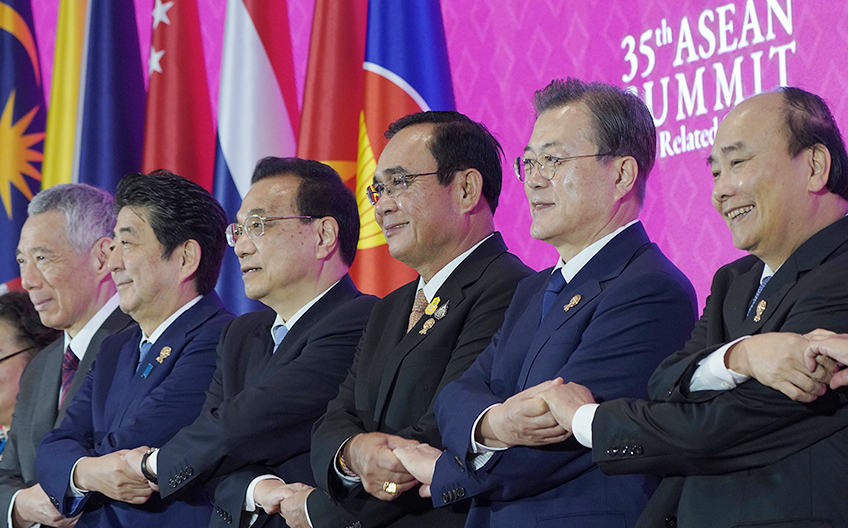
Challenges Ahead
Asia’s strong integration is considered an important building block underlying its tremendous economic success over the years. The continent remains the world’s fastest-growing region economically, responsible for more than two-thirds of estimated global growth this year.
Yet the near-term outlook is grim with prolonged economic uncertainty weighing on Asia. The IMF’s October report projected regional growth of 5.1 percent next year, down three-tenths of a percentage point than the fund’s forecast in April.
To prevent things from worsening, Korea and its Asian allies should take collective action to devise and implement the proper policies to reduce vulnerability and boost growth. Changyong Rhee, director of the IMF’s Asia and Pacific Department, said, “With Asia’s conjuncture at a delicate moment, policies will need to be supportive while safeguarding financial stability.”
Other Articles















